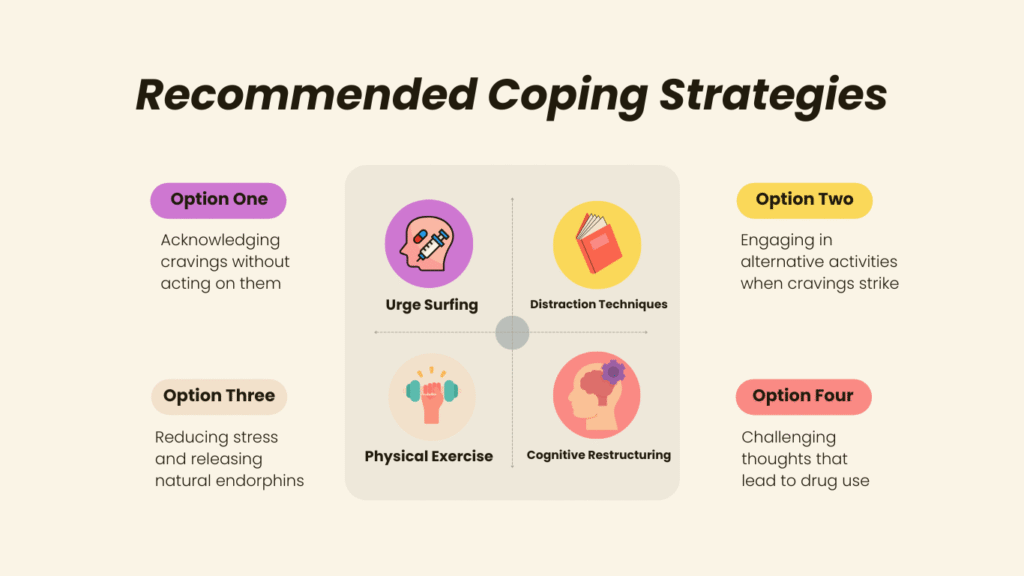Ecstasy Addiction Rehab Center in Atlanta, GA

Ecstasy addiction can be a challenging struggle that affects many individuals across Atlanta, Georgia. This powerful substance, also known as MDMA or “molly,” creates intense euphoric feelings that can lead to dependency and serious health complications.
MARR Treatment Centers’ ecstasy addiction rehab in Atlanta, GA, offers comprehensive approaches to recovery that address both the physical and psychological aspects of addiction.
Atlanta has become a hub for quality rehabilitation services, and our specialized facilities provide effective care for those battling ecstasy addiction.
We offer tailored treatment programs that help patients navigate the challenges of withdrawal and develop strategies for long-term sobriety. We understand that recovery extends beyond detoxification, incorporating therapy and support systems essential for lasting change.
The journey to overcome ecstasy addiction requires professional guidance, which is readily available within our rehab community. Our clients have access to experienced staff who specialize in treating stimulant addictions.
Our professionals help individuals address the underlying causes of their substance use while providing the tools necessary to rebuild their lives after addiction.
Why Choose MARR Treatment Centers for Ecstasy Addiction Treatment in Atlanta?
MARR Addiction Treatment Centers is a good choice for addiction treatment for several reasons. We offer compassionate, evidence-based addiction recovery and mental health treatment.
Our programs include therapeutic community housing, which allows more time to address the underlying causes of substance abuse, such as mental health disorders and trauma.
MARR Treatment Centers also provides gender-specific treatment programs, including a dedicated women’s and men’s recovery center.
Established in 1975, MARR Treatment Centers have a long-standing presence in the field and a commitment to saving lives and reclaiming our clients’ freedom from addiction.
Family Therapy and Relationship Building
Ecstasy addiction affects not only individuals but their entire support network. MARR Treatment Centers recognize this impact and include family therapy as a crucial component of recovery.
Family sessions educate loved ones about addiction as a disease and teach effective communication strategies. These meetings help repair damaged relationships and establish healthy boundaries that support recovery.
Multi-family groups allow families to share experiences and solutions with others facing similar challenges. This creates a community of support that extends beyond the treatment facility.
Relationship counseling may be offered to address specific issues between partners when ecstasy use has damaged intimate relationships. Learning to rebuild trust takes time and professional guidance.
Family involvement significantly improves treatment outcomes by creating a supportive environment for the recovering individual to return to after completing intensive treatment.
Understanding Ecstasy Addiction
Ecstasy addiction develops through repeated use of MDMA, a synthetic drug with both stimulant and hallucinogenic properties. The euphoric effects of this drug can lead to physical and psychological dependence that disrupts normal functioning.
Signs of Ecstasy Addiction
Recognizing ecstasy addiction requires understanding its common indicators. Users often exhibit behavioral changes, including increased secrecy, financial problems, and neglecting responsibilities at work or home.
Physical signs include:
- Dilated pupils
- Increased heart rate and blood pressure
- Clenching or grinding teeth
- Excessive sweating
- Sleep disturbances
Psychological indicators often become more noticeable as addiction progresses:
- Strong cravings for the drug
- Developing tolerance (needing more for the same effect)
- Continuing use despite negative consequences
- Withdrawal symptoms when not using
Many experiencing MDMA addiction find themselves planning their lives around obtaining and using the drug. Social withdrawal from non-drug-using friends and family is also common.
The Impact of MDMA on Mental Health
MDMA significantly affects brain chemistry by flooding it with serotonin, dopamine, and norepinephrine. This chemical disruption can trigger or worsen mental health disorders with both short and long-term consequences.
Short-term effects include:
- Intense euphoria followed by severe depression
- Anxiety and panic attacks
- Confusion and disorientation
- Sleep problems
Long-term mental health impacts may include:
- Persistent depression and anxiety
- Memory problems and cognitive impairment
- Increased risk of paranoia
- Potential development of psychosis
Research suggests that regular MDMA use damages serotonin-producing neurons, which may not fully recover even after prolonged abstinence. This damage contributes to mood disorders that can persist long after stopping the drug.

Options for Ecstasy Addiction Treatment in Atlanta, GA
Recovery from ecstasy addiction involves several treatment options and approaches tailored to individual needs. Each level of care provides specific support designed to address both the physical and psychological aspects of MDMA dependency.
Medical Detoxification
The first crucial step in treating ecstasy addiction is medical detoxification. This process allows the body to clear itself of MDMA and other substances under professional supervision. Medical detox typically lasts 3-7 days, depending on usage history and individual factors.
During detox, medical professionals monitor vital signs and manage withdrawal symptoms. These symptoms may include:
- Fatigue and exhaustion
- Depression and anxiety
- Sleep disturbances
- Drug cravings
- Difficulty concentrating
We may provide medications to ease discomfort and ensure safety. While ecstasy doesn’t cause the severe physical withdrawal seen with other substances, the psychological withdrawal can be intense.
Inpatient Treatment
Inpatient treatment programs provide the highest level of care for ecstasy addiction. Patients typically live at the facility for 30-90 days, receiving round-the-clock supervision and support.
These structured programs include:
- Individual therapy sessions
- Group counseling
- Educational workshops
- Holistic wellness activities
- Nutrition and exercise programs
The immersive environment removes triggers and temptations, allowing patients to focus entirely on recovery. Daily schedules are carefully planned to promote healing and develop healthy routines.
Inpatient care is particularly beneficial for those with:
- Severe addiction
- Previous relapse history
- Unstable home environments
- Co-occurring mental health disorders
We offer customized inpatient programs specifically designed for ecstasy recovery. Our approach combines evidence-based treatments with holistic methods to address all aspects of addiction.
Partial Hospitalization Program (PHP)
PHPs provide intensive treatment while allowing our clients to return home in the evenings. This option is a step down from inpatient care or an initial treatment for those with stable living situations.
Clients typically attend treatment 5-7 days per week for 6-8 hours daily. Programs include:
- Structured therapy sessions
- Group counseling
- Life skills development
- Relapse prevention training
- Family therapy options
By addressing both the physiological effects and psychological aspects of MDMA dependency, our semi-structured environment helps bridge the gap between residential treatment and independent living.
This level of care works well for individuals who:
- Have completed inpatient treatment
- Need intensive therapy but can maintain sobriety at home
- Have supportive family members
- Cannot commit to residential treatment due to responsibilities
Treatment centers regularly assess progress to determine when clients can transition to less intensive care.
Intensive Outpatient Program (IOP)
IOPs offer flexibility while maintaining substantial therapeutic support. Clients typically attend treatment 3-5 days weekly for 3-4 hours per session, allowing them to work or attend school while receiving care.
Key components of outpatient treatment include:
- Cognitive-behavioral therapy
- Group support sessions
- Relapse prevention strategies
- Drug testing and accountability
- Aftercare planning
This level of care helps clients gradually return to daily responsibilities while reinforcing recovery skills. We also offer evening sessions to accommodate work schedules.
IOPs are particularly effective for:
- Those stepping down from higher levels of care
- Individuals with strong support systems
- People who need treatment but must maintain employment
- Clients who have made significant progress in recovery
Many programs incorporate medication-assisted treatment when appropriate, though specific medications for ecstasy addiction remain limited.
Dual Diagnosis Treatment
Many individuals struggling with ecstasy addiction also face co-occurring mental health disorders. Dual diagnosis treatment addresses both conditions simultaneously for more effective recovery.
Common co-occurring conditions with ecstasy addiction include:
- Depression
- Anxiety disorders
- PTSD
- Bipolar disorder
- Other substance use disorders
Specialized treatment involves:
- Psychiatric evaluation and care
- Customized medication management
- Trauma-informed therapy approaches
- Integrated treatment planning
- Specialized support groups
Ecstasy can significantly impact brain chemistry, particularly serotonin systems, which may worsen existing mental health conditions. Our comprehensive dual diagnosis programs work to restore neurochemical balance while developing healthy coping mechanisms.
We employ psychiatrists and therapists who specialize in treating the complex relationship between ecstasy use and mental health disorders.
Therapies and Approaches in Ecstasy Addiction Rehab in Atlanta, GA
Effective ecstasy addiction treatment requires a comprehensive approach that addresses both physical dependence and psychological factors. MARR Treatment Centers utilize multiple therapeutic techniques to help individuals recover from MDMA addiction and develop long-term coping strategies.
Evidence-Based Therapies
Our ecstasy addiction treatment programs rely on scientifically validated approaches that have proven results. Cognitive-behavioral therapy (CBT) is a cornerstone therapy, helping patients identify harmful thought patterns and develop healthier responses to triggers.
Dialectical Behavior Therapy (DBT) teaches emotional regulation and distress tolerance skills essential for recovery. Many facilities also implement Motivational Enhancement Therapy to strengthen commitment to sobriety.
Group therapy sessions provide peer support while allowing individuals to practice communication skills in a safe environment. These sessions reduce isolation and help patients understand they aren’t alone in their struggles.
We customize evidence-based protocols based on individual needs, ensuring each person receives the most effective combination of therapies for their specific situation.
Medication-Assisted Treatment (MAT)
While there are no FDA-approved medications specifically for ecstasy addiction, we may prescribe certain medications to manage withdrawal symptoms and related issues. Antidepressants sometimes help address depression that can emerge during MDMA withdrawal.
Sleep medications may be prescribed temporarily to combat insomnia, a common withdrawal symptom. Anti-anxiety medications might be used carefully to reduce psychological distress during the early recovery phase.
Medical staff monitor clients closely during detox to manage symptoms and ensure safety. This monitoring is critical since ecstasy withdrawal can involve mood swings and psychological challenges.
MAT works best with behavioral therapies and counseling, creating a comprehensive treatment approach. Regular assessment of medication effectiveness allows for adjustments as recovery progresses.
Behavioral Therapies
Behavioral therapies form the foundation of ecstasy addiction treatment. These approaches help individuals modify behaviors associated with drug use and develop healthier coping mechanisms.
Contingency Management provides incentives for maintaining sobriety and meeting treatment goals. This positive reinforcement system helps build motivation during challenging phases of recovery.
Common Behavioral Therapies include:
- Individual counseling sessions
- Relapse prevention training
- Stress management techniques
- Mindfulness and meditation practices
- Life skills development
Behavioral therapies also address co-occurring mental health conditions that may contribute to substance use. Many people who struggle with ecstasy addiction have underlying anxiety, depression, or trauma that requires treatment.
Regular therapy sessions help patients build resilience and develop strategies for navigating high-risk situations without returning to drug use.

Coping with Cravings for Ecstasy
Cravings for ecstasy can be intense due to the drug’s powerful effects on neurotransmitters. Atlanta treatment centers teach specific techniques to manage these urges effectively.
Recommended coping strategies include:
- Urge surfing – acknowledging cravings without acting on them
- Distraction techniques – engaging in alternative activities when cravings strike
- Physical exercise – reducing stress and releasing natural endorphins
- Cognitive restructuring – challenging thoughts that lead to drug use
We often practice these techniques in both individual counseling and group therapy settings.
The most effective approach combines professional guidance with a commitment to consistently practicing these strategies.
Support Beyond the Treatment: Pursuing Long-Term Recovery
Recovery from ecstasy addiction doesn’t end when formal treatment concludes. The journey toward lasting sobriety requires ongoing support and commitment to prevent relapse and maintain progress.
Aftercare and Continued Support
Successful ecstasy addiction treatment includes comprehensive aftercare planning to bridge the transition from rehab to everyday life. We offer continuing care programs with regular check-ins and counseling sessions.
Individual therapy remains crucial during this phase, as it addresses personal triggers and helps maintain mental health stability. For those with a co-occurring disorder, ongoing psychiatric care ensures both conditions are managed effectively.
Ready to Reclaim Your Life from Ecstasy Addiction?
Don’t let ecstasy control your future any longer. We provide comprehensive and compassionate care tailored to your unique needs at MARR Addiction Treatment Centers in Atlanta, GA.
Our evidence-based therapies, family support programs, and dedicated team of professionals are here to guide you every step of the way toward lasting recovery. Take the first step towards a brighter, drug-free future.
Contact us today at 678-884-4080 to learn more about our Ecstasy Addiction Rehab program and start your journey to healing.
